MATP and CATP are designed to fit the needs of your staff, in both the municipal and commercial sectors, and are completely customizable to fit the skill levels of your team. Training is offered at your facility during the weekdays and utilizes your equipment, so you have a complete understanding of the equipment that you are already using on a day to-day basis.
MATP & CATP training topics include:
Many individuals and organizations have already taken advantage of MATP and CATP and since it was such a great success, we are continuing these programs indefinitely. In 2024 there will be changes to training requests, pricing, scheduling, and the amount of MATP and CATP training offerings per year so that our instructors are able to provide the best training possible. Current changes to Tree Worker Advanced Training, MATP, and CATP trainings include:
The Advanced Training Committee and its instructors hope that these changes will streamline training requests for the best experience possible and we look forward to working with your teams in 2025!
All our full-day training programs will follow a flat-rate pricing structure. Classes will cost $1750.00 for a maximum of 12 attendees. Please note that we will no longer offer half-day classes.
*Any cancellations without 24 hour’s notice will incur a $150 cancellation fee.
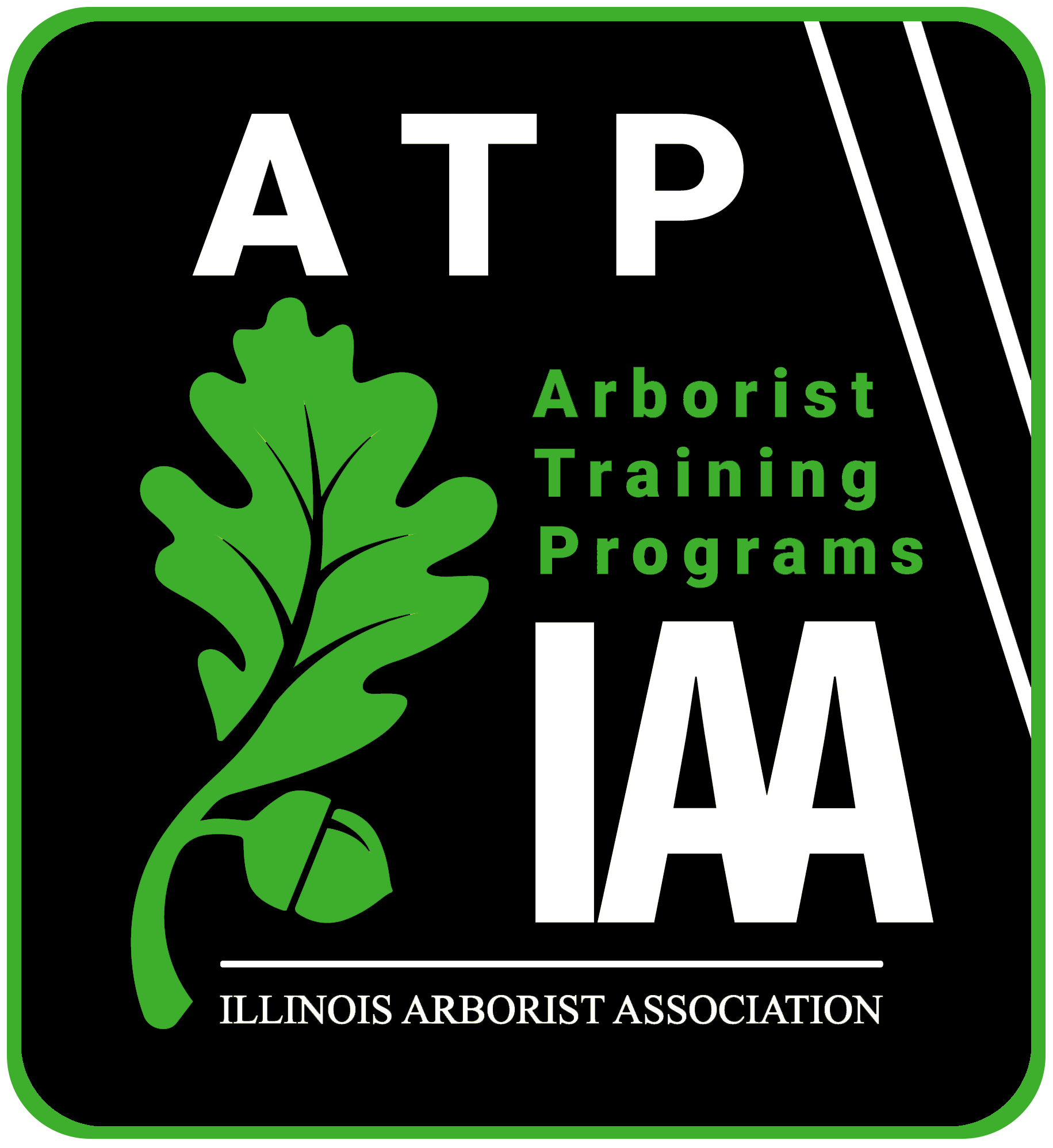
Below is a brief description of each training topic. Each Topic is a 1/2 day class.
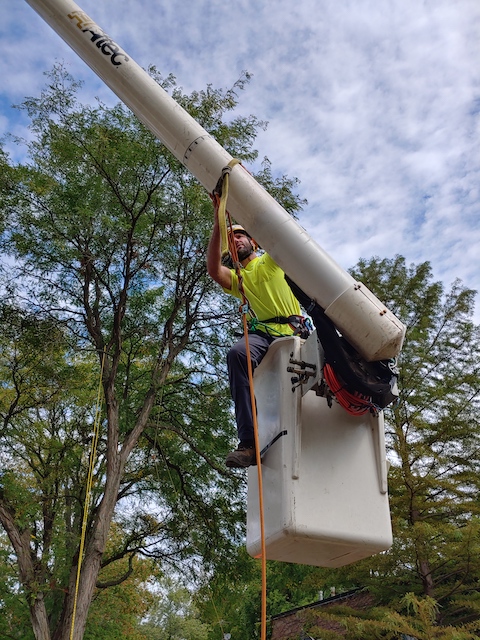
(1) Aerial Lift Safety, Rescue & Operation and rescue goes over pre-trip inspection; flying the unit, to make sure it’s holding pressure, before leaving the yard; aerial lift positioning for the task at hand; leveling using the stabilizers; proper unfolding and folding procedures; using the platform controls to lower the booms; rescue techniques (bringing an injured or incapacitated operator down to a flat surface to begin 1st aid or CPR).
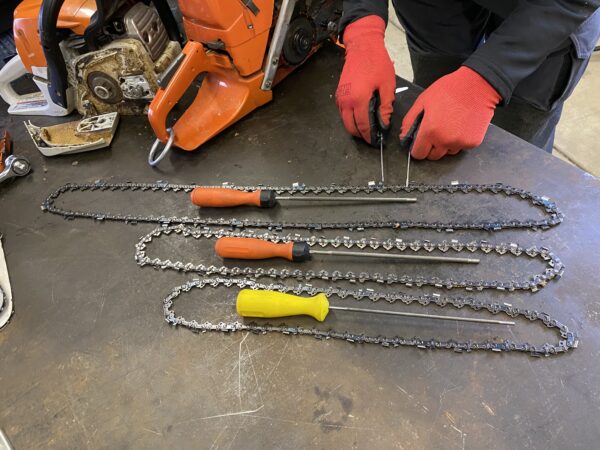
(2) Chainsaw Safety, Maintenance & Operations includes checking for loose and missing parts, making sure the built-in safety features are properly working, proper cleaning techniques including air filter, guide bar resurfacing, drive sprocket replacement, proper chain tension, proper starting techniques, proper grip, proper stance, different cutting techniques and chain sharpening.
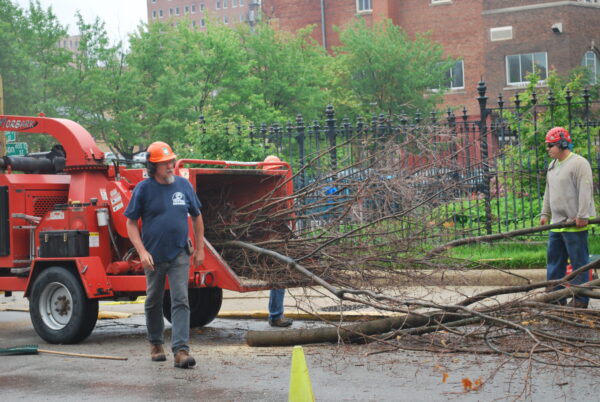
(3) Chipper Safety & Operation goes over pre-trip inspection; proper attachment to the tow vehicle, making sure the safety chains are crossed; proper starting method, how soon to engage the drum/disc after starting; checking the built-in safety features (rubber kickback flap, forward/reverse bar, etc.); proper road cone and traffic sign placement using MUTCD Standards; proper chipper feeding methods; using a ‘push stick’ for shorter sticks/raking’s; proper shut down method.
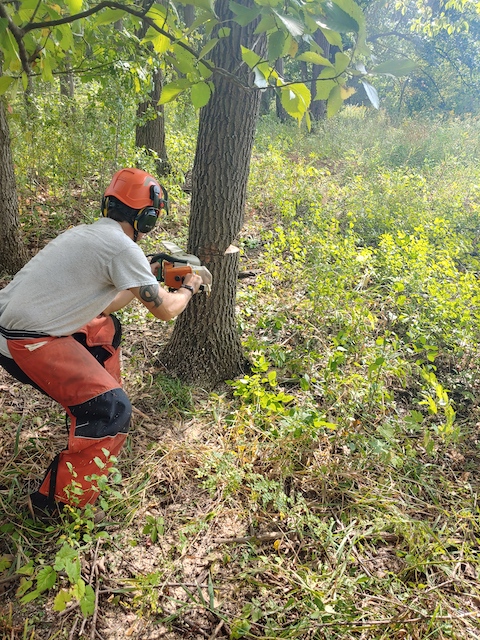
(4) Felling Safety & Techniques using the 6-Step Precision Felling Plan includes using six (6) steps to safely notch and drop a tree from near ground level. Felling is the ‘single, most dangerous act’ performed by an arborist. More arborists are seriously injured or killed by notching and dropping a tree than any other single act. Using the six (6) steps, greatly reduces the chance of an incident occurring.
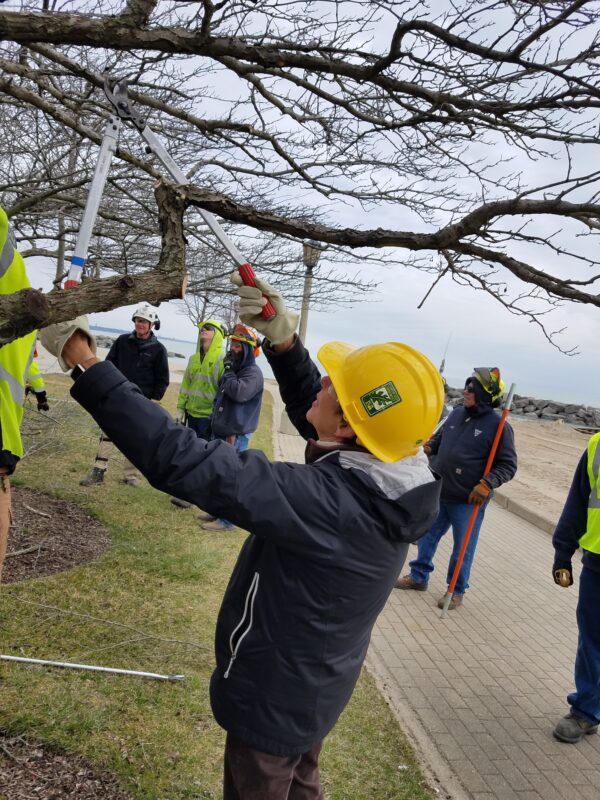
(5) Pruning Techniques uses the ANSI A300 Standard to perform proper pruning cuts. The various pruning techniques: deadwood pruning, elevation pruning, subordination pruning, crown reduction pruning are all demonstrated. Using the proper pruning tool for the task at hand is also demonstrated.
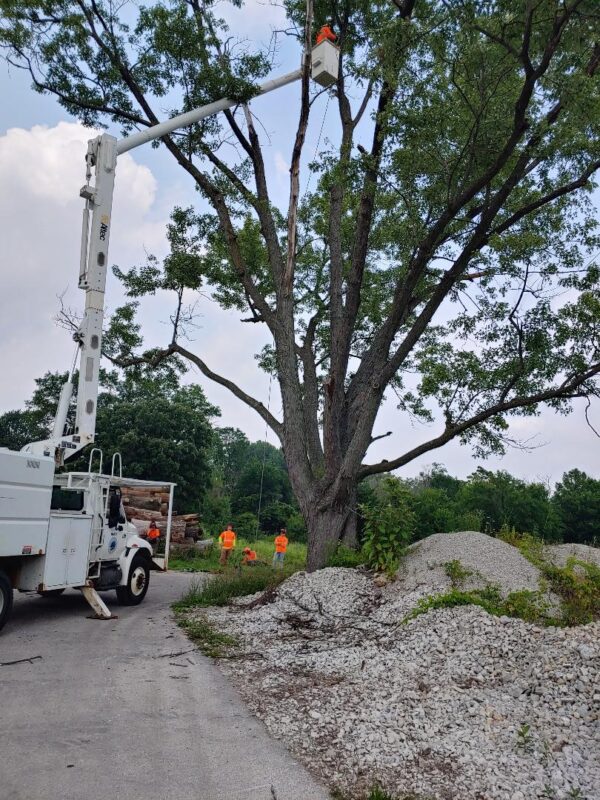
(6) Rigging Principles & Fundamentals shows how using arborist hardware (pulleys, bocks, ring products, rope friction devices, connecting links) and software (spliced eye slings, ring tools, rope tools) will make the tree dismantling process much Safer and more efficient. Using the trees structure to the riggers advantage is demonstrated by placing blocks/rings in the crown to put the limbs in compression.
NOTE: For the (1) Aerial Lift Safety, Rescue & Operation, (2) Rigging Principals & Fundamentals, and (5) Pruning Techniques courses, a waiver form will need to signed & dated by all attendees before we can schedule a date.
A certificate of completion is provided upon completion of each training course.
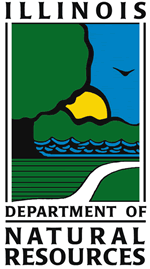
Funding support for training the trainers was provided by the Urban and Community Forestry Programs of the Illinois Department of Natural Resources and the USDA Forest Service Eastern Region. This institution is an equal opportunity provider.